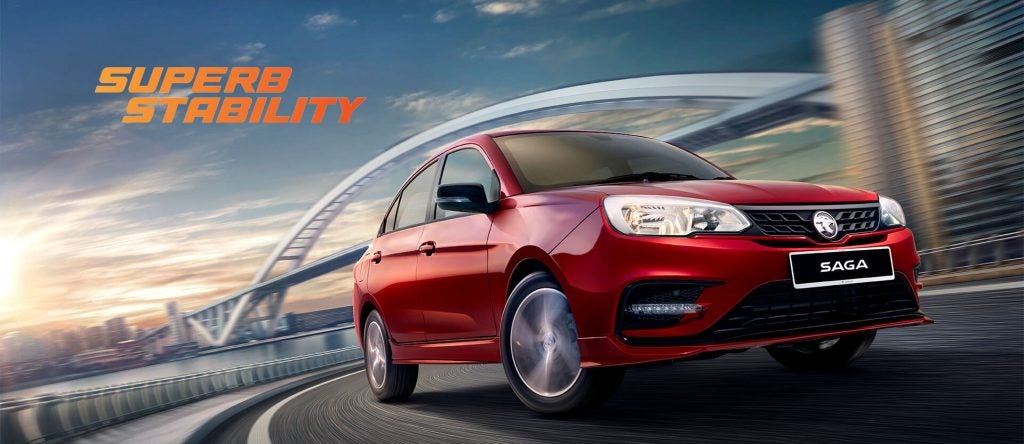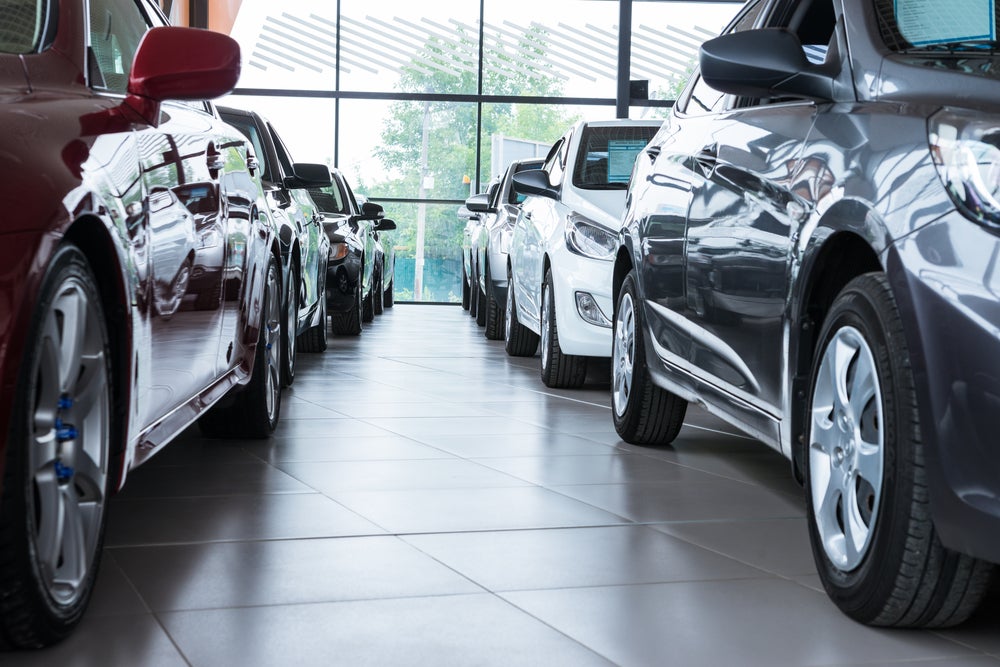What are the technology themes keeping senior executives up at night? And what are their investment priorities for 2024? Despite geopolitical turmoil and economic uncertainty in 2023, technology investment continued to grow significantly, underlining a common belief that the world’s greatest innovations have been born in times of great economic and political stress. With this in mind, Verdict this week looked at some of the top technology investment trends to watch in 2024.
COP28
What does COP28 mean for the auto industry? Well, for one thing, EVs are a bright spot. The circus in Dubai has finished. It was quite a gathering. Some 75,000 people attended and there were a lot of words written and broadcast in the media. Has it achieved much? People will continue to discuss and argue of course. Besides the data and the severity of the climate crisis humanity faces, arguments will rage about what actions make the most sense – and who needs to step up, pay for it – and how urgent things really are. Much is being made of the language in an agreed final text. It was agreed by 198 countries, so some softening was perhaps inevitable, but it does – for the first time – point to the role of fossil fuels in the global warming crisis. It calls on nations to ‘transition’ away from them, but doesn’t go as far as calling for them to be phased out. There’s a big discussion to be had about the cost of such a transition and how poorer countries can be helped with that. On the plus side, there are commitments being made and the direction of travel is there on renewable energy sources displacing fossil fuel sources – even if it can’t happen immediately. Also, technology and scale economies are making renewable solutions cheaper – over time – than oil and gas. The hope has to be that the laws of basic economics will move the dial towards more renewables as they become cheaper to deploy.
Product tech
Who would have predicted 30 years ago, when BMW introduced a new petrol V8 for its flagship 7 series that, several generations later, the technology leading masterpiece would be an electric? Times change. During our time with the car, we barely scratched the surface. We also took a look at an interesting new Polestar model which, rare these days, has switched from front wheel drive to rear.
Global sales
How well do you really know your competitors?
Access the most comprehensive Company Profiles on the market, powered by GlobalData. Save hours of research. Gain competitive edge.

Thank you!
Your download email will arrive shortly
Not ready to buy yet? Download a free sample
We are confident about the unique quality of our Company Profiles. However, we want you to make the most beneficial decision for your business, so we offer a free sample that you can download by submitting the below form
By GlobalDataThe Global Light Vehicle (LV) selling rate for November was 94 million units/year, slightly lower than the upwardly revised October figure of 95 million units/year. The market was up 14% YoY and in YTD terms 82 million vehicles registered, 11% higher than YTD Nov 2022. US sales were helped by agreements being settled between the Detroit 3 OEMs and the union, ending the strikes, along with increased incentives during Thanksgiving and Black Friday. China’s market in November also benefited from heavy incentives and discounts by OEMs and dealerships. Meanwhile, European regions continued their recovery. With supply constraints fading, adverse macroeconomic headwinds are a concern heading into 2024.
China overcapacity
Despite 2023 being – overall – a good year for China’s automobile market, overcapacity is becoming hard to ignore. Due to the ongoing vigorous price war, 2023 will turn out to be an exciting and high-profile year for China’s automobile industry. From leading brands to niche brands, from new energy vehicles (NEVs) to internal combustion engine (ICE) vehicles, fierce competition has occurred throughout the year. China’s light vehicle (LV) production total has ranked first in the world for 14 consecutive years and is expected to account for 32% of the global total in 2023. NEV production and sales have ranked first worldwide for eight consecutive years. China’s production has reached 1.7 times that of Europe, in second place.
HVAC growth
Automotive heating, ventilation, and air conditioning (HVAC) systems have undergone a transformative shift with manufacturers emphasising green technology for enhanced environmental sustainability and cost effectiveness. To align with rigorous government emission regulations, market competitors are actively producing eco-friendly HVAC products. The surge in energy efficiency, coupled with strategic mergers and acquisitions, is driving market growth. Amid rising global warming concerns, the Asia-Pacific (APAC) automotive HVAC systems market is anticipated to post a compound annual growth rate (CAGR) of 2.3% over 2023-28, forecasts GlobalData, a leading data and analytics company. GlobalData’s latest report, Automotive Heating, Ventilation and Air-Conditioning (HVAC) Market Trends and Analysis by Technology, Companies and Forecast to 2028, reveals that the APAC automotive HVAC systems market is estimated to grow from 45.3m units in 2023 to 50.8m units in 2028.
Battery recycling
SK Ecoplant Company said it had completed construction of its second battery recycling plant in China to meet rising demand from the country’s fast expanding electric vehicle (EV) market and well as from used electronic products such as laptops and smart phones. The new plant, in Jiangsu province, has annual processing capacity of up to 2,000 tonnes of black mass, or shredded material derived from used battery cells containing minerals such as lithium, copper, cobalt and nickel. The company already has a battery recycling plant in Shanghai and is scheduled to complete expansion of the Jiangsu plant by the end of 2024, doubling its capacity to 4,000 tons per year.
Tesla ‘recall’
Tesla will repair over 2m vehicles, its biggest recall, after the US auto safety regulator determined the driver assistance system Autopilot doesn’t do enough to guard against misuse. Bloomberg said the move was the result of a years long defect investigation which the National Highway Traffic Safety Administration would keep open to monitor the effect of Tesla’s fixes. A NHTSA spokesperson told Bloomberg the probe found Tesla’s means for keeping drivers engaged were inadequate. According to Bloomberg, Tesla said in its recall report it expected to start deploying an over the air software update to incorporate additional controls and alerts on or shortly after 12 December. The recall is the second this year involving Tesla’s automated driving systems.
Bulgarian batteries
Belgian battery manufacturer Avesta Battery & Energy Engineering (ABEE) plans to invest EUR1.1bn (US$1.2bn) to make lithium-ion batteries in Bulgaria over the next three to five years, Bulgarian prime minister Nikolay Denkov said, as quoted by state news agency BTA and reported by SeeNews.com. The investment project would be among the largest in Europe and envisioned opening plants in Stara Zagora, Plovdiv and Burgas, BTA reported. It was expected to create over 1,000 new jobs. The reports said ABEE intends to open a research and development (R&D) base in Plovdiv and build a lithium-ion battery factory in Stara Zagora, producing 10 gigawatts of solid state batteries annually.
Changan Thai assembly
Chinese state owned Changan Automobile plans to begin vehicle production in Thailand in the first quarter of 2025 at a factory it will build in an industrial complex in Rayong province, the Thai vehicle manufacturing hub. Changan first indicated it planned to invest in a Thai factory in April after it held preliminary talks with the Board of Investments (BOI). The company has now firmed up plans to invest an initial THB10bn (US$280m) in the country, to build a plant with an initial capacity for 100,000 vehicles per year and to set up local vehicle and parts distribution operations. The Rayong plant will be Changan’s first overseas factory and is part of an ambitious programme announced last April to invest US$10bn to establish annual production capacity for 1.2million vehicles outside China by 2030.
Reining in Chinese EVs
After raising import duty on Chinese EVs in March, Turkey has now introduced new stringent regulations on EV importers. The country has toughened its electric vehicle import regulations in a move that appears to be calculated to rein in the growing volume of Chinese electric vehicle (EV) imports. According to a Trade Ministry decree published in November, companies importing EVs to Turkey must have at least 140 authorised service stations distributed evenly across the country and open one call centre for each brand. Importers will need to comply with the stringent regulations by the end of this month. Imports from the EU and countries that have free-trade agreements with the country are exempt from the decree. However, BYD, China’s best-selling car brand, is already reportedly planning a nationwide authorised service network and has been signing contracts with dealers to deliver services to customers.
Tesla Mexico plant closer
Tesla appears to be pushing ahead with its stated plan to build a new EV manufacturing plant in Mexico. According to Reuters, Tesla has received land-use permits from Mexico’s federal environment ministry to build a planned gigafactory in the northern border state of Nuevo Leon. Reuters cited the state government as source. According to the report, the state government said the land designated for the plant spans around 261 hectares (645 acres).
CATL hits back
China’s CATL has responded to accusations that its batteries pose an espionage threat after US power and gas firm Duke Energy disconnected its CATL batteries from its North Carolina Marine Corps base Camp Lejeune. CATL told Reuters in a statement that accusations about its batteries posing a potential security threat are false and misleading and that its products have passed rigorous safety and security reviews including those by US authorities and businesses. On 1 December, US Senator Marco Rubio and colleagues sent a letter to the US Secretary of Defense Lloyd Austin, demanding that the US Department of Defense immediately reverse the decision to install CATL batteries at Camp Lejeune. “The growing presence of CATL and other Chinese products in U.S. infrastructure is concerning, but it is inexcusable on U.S. military installations,” the letter reads. “The CCP’s pattern of espionage leaves little room for doubt that CATL products pose a threat to national security at any base where they are installed.”
China sales surge
New vehicle sales in China surged 27% to 2.97m units in November 2023 from weak year earlier sales of 2.33m units, according to passenger car and commercial vehicle wholesale data released by the China Association of Automobile Manufacturers (CAAM). Passenger vehicle buyers, attracted by a large number of new model launches in recent months, rushed in to the market take advantage of aggressive promotional campaigns and deep discounting by vehicle manufacturers and dealers. The country’s economic recovery from the Covid pandemic has been sluggish, despite significant economic stimulus by the government in the last year, with GDP expanding by just 5.2% in the first nine months of 2023 after growth slowed to 3% in the whole of 2022. Manufacturing and exports remain weak.
Jeep jobs jeopardy
Stellantis has said it might eliminate about 3,500 jobs at two Jeep production facilities in the US offering more details on cuts the automaker has said were necessary because stricter emission standards in several states would slow sales of petrol powered vehicles. According to Bloomberg, the automaker plans to start axing about 1,200 positions in early February at its Jeep assembly complex in Toledo, Ohio, according to a notice posted last Friday to a state website. Jodi Tinson, a Stellantis spokeswoman, told Bloomberg the company had also filed a notice with Michigan warning of as many as 2,455 job cuts at a facility in Detroit. However, the totals for both locations are likely to be lower because of the “complexity of our bargaining agreement” with organised [unionised] labour, she added.
Toyota Tundra RHD
Toyota Australia has begun selling the US made Tundra pickup truck with the first “re-engineered” [converted locally to] right hand drive vehicles now in customer hands. A so called Tundra Insider Program will see 300 potential customers lease the Tundra on a full service lease basis as part of a real-world evaluation and validation program, “reporting back regularly to Toyota on their experience”. Sales and marketing chief Sean Hanley said this was an important step in what was a world first local re engineering programme for Toyota “to ensure the Tundra is perfectly suited to the demands of Australian customers”.
Korea imports down
Sales of imported light passenger vehicles in South Korea fell 12% to 24,740 units in November 2023 from 28,222 units a year earlier, according to the Korea Automobile Importers & Distributors Association (KAIDA). The data did not include some non-affiliated brands, including Tesla. The market continued to weaken amid sluggish consumer spending following the sharp interest rate hikes by the central bank in the last year from 1.25% to 3.5%. Importers also faced stronger competition from domestic brands, particularly Hyundai and Genesis. Overall sales by domestic manufacturers increased 3% to 132,589 units last month. In the first 11 months of the year, import sales were 4% lower at 243,811 units from 253,795 in the same period of 2022 with German owned brands accounting for 75%.
More Skoda assembly
Skoda is expanding its cooperation in Kazakhstan with local partner Allur in a number of areas. The VW-owned brand has signed agreements with local partners for local sales and production as well as training. Local assembly of Skoda Octavia, Kamiq, Karoq, and Kodiaq models from SKD (semi-knocked down) kits will start gradually in first quarter. Among the agreements signed by Skoda Auto and Allur is an MoU, which includes evaluating the feasibility of locally producing vehicles from CKD ((completely knocked down) kits after 2025. If successful, this would lead to a more comprehensive manufacturing process at the production plant, including welding, painting, and final assembly, and would also allow for greater involvement of local suppliers.
Diesels dumped
Hyundai and Kia ceased domestic production of diesel light trucks last month, ahead of new environmental regulations set to come into force in South Korea at the beginning of 2024 which will restrict local sales. The two automakers, which dominate the domestic light truck segment with the Hyundai Porter and Kia Bongo, have replaced diesel versions with models powered by liquefied petroleum gas (LPG) with a new turbocharged T-LPDi 2.5-litre engine developed to ease concerns over a lack of power compared with the outgoing unit. The Porter and Bongo, widely used as local delivery vehicles, are also gaining in popularity as battery electric vehicles (BEVs).
Have a nice weekend.
Graeme Roberts, Deputy Editor, Just Auto




